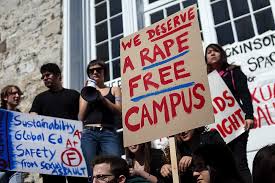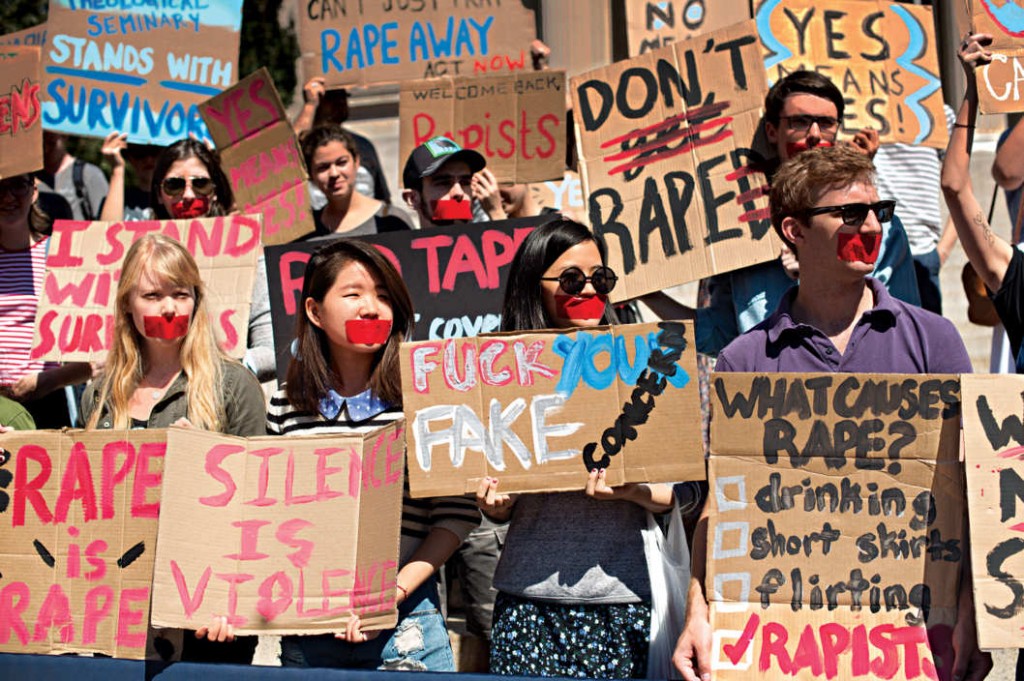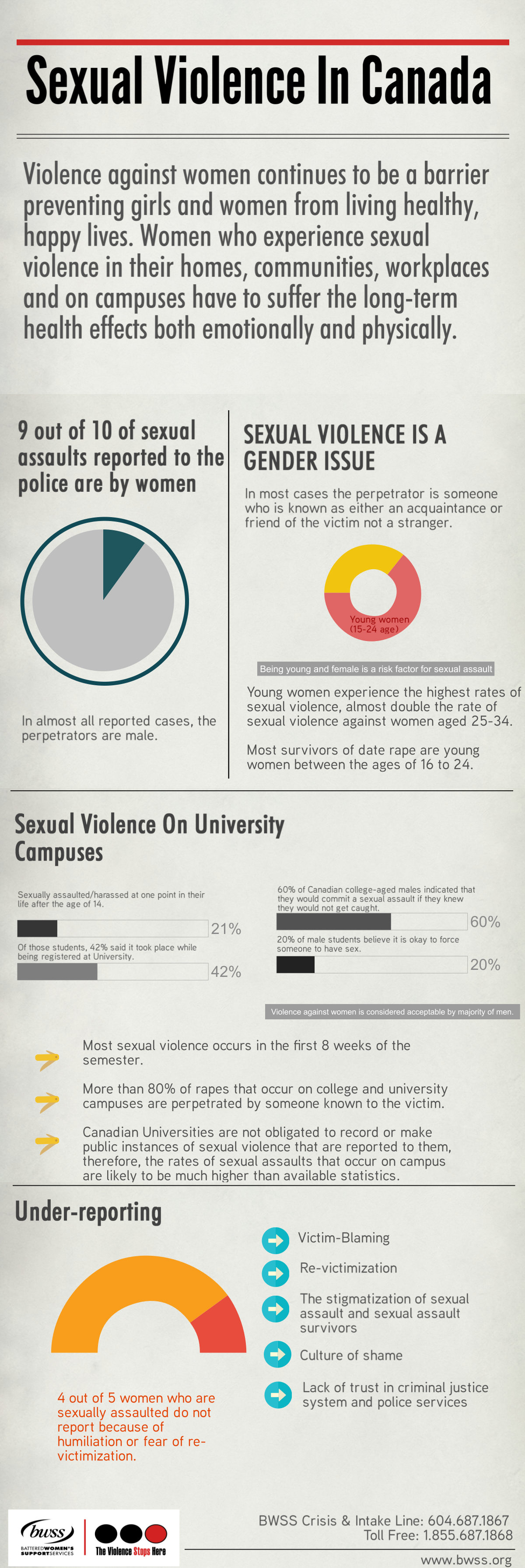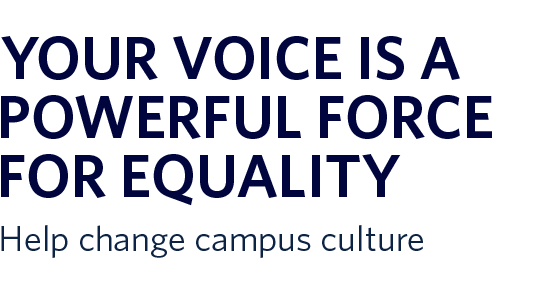Sexual Violence in Canada – An Equality Issue
by Rona Amiri, BWSS Violence Prevention Co-ordinator
Violence against women continues to be a barrier preventing girls and women from living healthy, happy lives. Women who experience sexual violence in their homes, communities, workplaces and on campuses have to suffer the long-term health effects both emotionally and physically.


While the majority of incidents of sexual violence go unreported we do know nine out of ten of sexual assaults reported to the police are by women[1] and in almost all cases the perpetrators are male[2]. Contrary to popular belief, in most cases the perpetrator is someone who is known as either an acquaintance or friend of the victim not a stranger. One in five reported cases of sexual assault occurs in an intimate relationship[3]. Moreover, being young and female is a risk factor for sexual assault. Young women (15-24) experiences the highest rates of sexual violence, almost double the rate of sexual violence against women aged 25-34. Young women also have the highest rates of being stalked –usually by someone they know (two-thirds of cases)[4]. Date rape is the most underreported crime in Canada and most survivors are young women between the ages of 16 to 24[5].

Sexual violence on university campuses
Secondary institutions should be safe places where people of all genders are able to learn, grow and engage in the community. Unfortunately, the reality is that Universities and Colleges are places where women face sexual violence. Most sexual violence occurs in the first 8 weeks of the semester[6]. More than 80% of rapes that occur on college and university campuses are perpetrated by someone known to the victim[7]. Canadian Universities are not obligated to record or make public instances of sexual violence that are reported to them, therefore, the rates of sexual assaults that occur on campus are likely to be much higher than available statistics.
A campus survey at the University of Alberta showed 21% of students reported being sexually assaulted/harassed at one point in their life after the age of 14[8]. Of those students, 42% said it took place while being registered at University and over half reported that it happened during their first year of studies[9].
Surveys on male students have shown extremely problematic attitudes to sexual violence. One survey showed that 60% of Canadian college-aged males indicated that they would commit a sexual assault if they knew they would not get caught[10]. Another survey found that 20% of male students believe it is okay to force someone to have sex if they spent money on the date, they were drunk or stoned or if they had been dating for a long time[11]. These attitudes reveal a cultural which we live in where violence against women is considered acceptable by majority of men.
Under-reporting
Information on the prevalence of sexual assault in Canada is limited. It is important to note that these statistics are based on formal police-reported cases of sexual and gender violence. It is estimate that 4 out of 5 women who are sexually assaulted do not report because of humiliation or fear of re-victimization. The underestimation of sexual violence highlights the extent of the problem with sexual violence and a culture that discourages girls and women from speaking up. Incidents of sexual violence are not reported to the police for several reasons. When women do come forward they are frequently blamed for being assaulted, they receive bad treatment or police fail to take evidence. Causing many women to feel humiliated, ashamed, unsafe, and unsupported or fear they will be re-victimized if they report sexual assault. Sexual violence carries a stigma and many girls and women are blamed for their assault. Even those individuals who work in the justice system add to a culture of shame. Police and judges have been reported making ‘victim-blaming’ comments such as that a woman was “asking for” sexual violence based on her clothing. This is unacceptable and creates a climate where girls and women do not feel comfortable seeking justice following a sexual assault.
[1] Statistics Canada. Gender Differences in Police-reported Violent Crime in Canada, 2008. 2010
[2] Statistics Canada. Gender Differences in Police-reported Violent Crime in Canada, 2008. 2010
[3] Statistics Canada. Gender Differences in Police-reported Violent Crime in Canada, 2008. 2010
[4] Statistics Canada. Measuring violence against women: Statistical trends. 2013.
[5] Johnson. H. (2006). Measuring Violence against Women: Statistical Trends 2006. Statistics Canada catalogue no. 85-570-XWE. Ottawa. Retrieved February 16, 2007 from http://www.statcan.ca/english/research/85-570-XIE/85-570-XIE2006001.htm
[6] Department of Justice Canada. Factsheet on Dating Violence. 2003.
[7] Metropolitan Action Committee on Violence Against Women. York University Safety Audit. 2010.
[8] University of Alberta Sexual Assault Centre. A Survey of Unwanted Sexual Experience Among University of Alberta Students. 2001.
[9] University of Alberta Sexual Assault Centre. A Survey of Unwanted Sexual Experience Among University of Alberta Students . 2001.
[10] Lenskyj, Helen. An Analysis of Violence Against Women: A Manual for Educators and Administrators. 1992
[11] Johnson, H. Dangerous Domains: Violence against Women in Canada. 1996.
If you could do something to end violence against girls and women, wouldn’t you?










